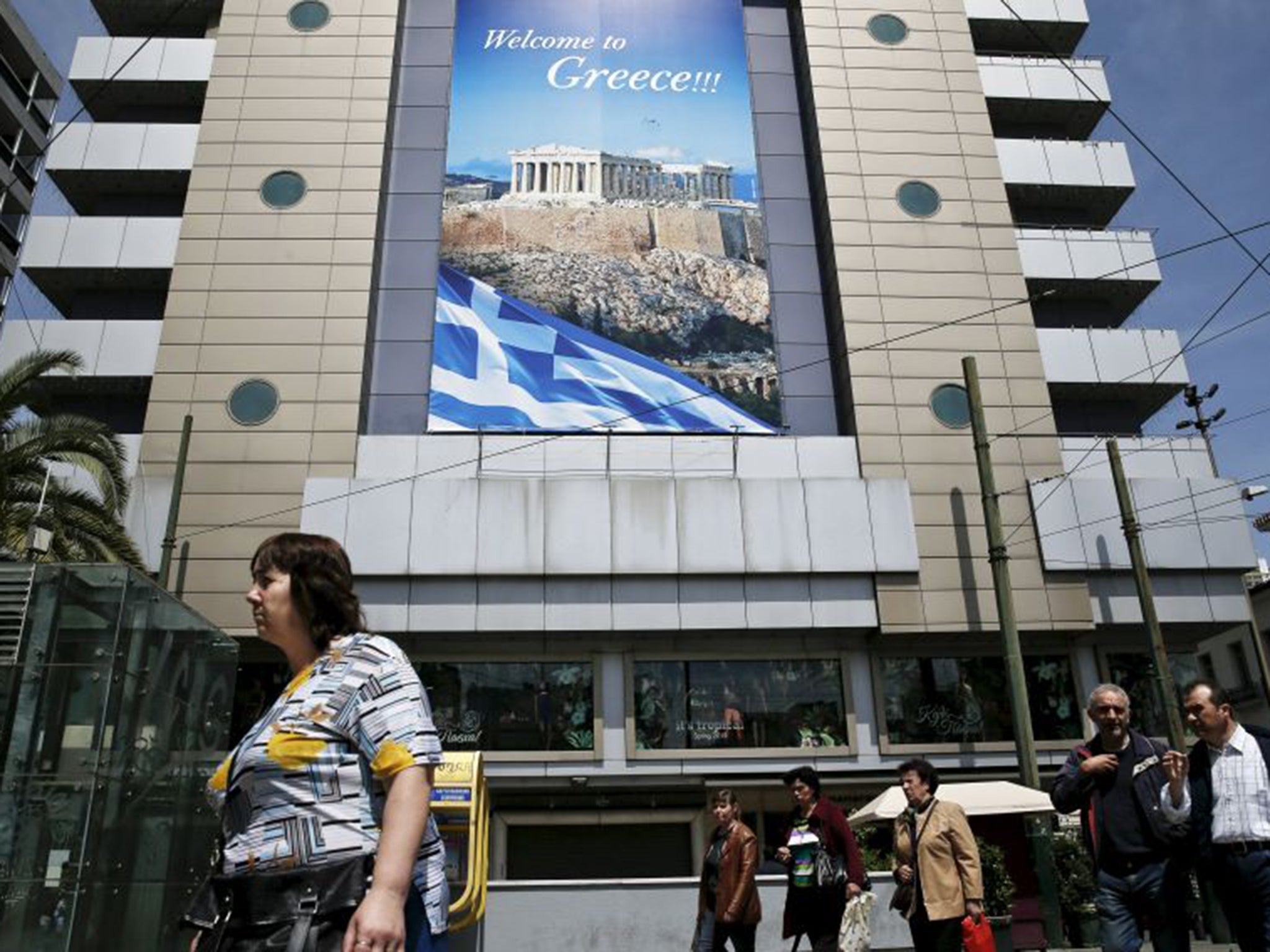More pressure has been heaped upon Athens, as reports suggested the European Central Bank is looking at placing greater restrictions on the use of its emergency lending facilities by Greece’s domestic banks.
Greek banks have tapped around €74bn (£53bn) in emergency liquidity assistance from the ECB to replace the deposits that nervous domestic savers have pulled out of the financial system in recent months. Without that lifeline, the country’s banks would rapidly collapse.
Greek financial stocks duly sold off heavily after the report emerged that the ECB is considering increasing the interest rate – or “haircut” – on their ELA borrowing, with the banking index shedding 5.5 per cent.
Greece’s three-year borrowing costs also jumped to just shy of 30 per cent, reflecting rising concerns about the solvency of the country’s banking system and the lack of progress towards a deal between Athens and its eurozone creditors. Greece needs a €7.2bn bailout from its partners in order to service its maturing debts and to carry on paying public sector workers. It also needs to make an €800m payment to the International Monetary Fund early next month.
Eurozone officials were playing down expectations of any deal being concluded on Friday, when finance ministers meet in Riga. Financial markets are showing increasing signs of concern over the possibility that Greece could run out of money and default on its debt. This could rapidly lead to its exit from the single currency.
There have been signs that Greece is preparing for the possibility of life outside the single currency. Earlier this month its Prime Minister, Alexis Tsipras, made a trip to Moscow to meet Vladimir Putin. He followed that up with talks with Alexey Miller, the head of the Russian oil giant Gazprom, over investment in Greece.
While money has been flowing out of Greek sovereign debt, it has been flowing into perceived safe havens. The ECB’s quantitative easing scheme has also pumped large volumes of liquidity into the single currency’s financial system, pushing down borrowing rates in many areas to unprecedented lows.
It was reported that Mr Tsipras could meet the German Chancellor, Angela Merkel, on the sidelines of tomorrow’s Brussels summit.
Greece’s creditors are refusing to hand over the €7.2bn of bailout funds owed to Athens until the government has provided an acceptable list of structural economic reforms. Athens is balking at the demands.
Greece’s cash-flow crisis was made plain on Monday when Athens issued an emergency decree forcing 1,500 state entities, including local governments, to park all their spare cash balances in a “common fund” to finance pensions, public-sector workers’ salaries and sovereign debt.
Data from the Bank of Greece shows that domestic resident deposits fell to €152bn in February, down from €178bn last October.
The ECB is allowing Greek banks to continue swapping Greek sovereign bonds in return for cash on the basis that the country is still in an official bailout programme. But there have been signs that some ECB board members are nervous about the possibility that the bonds could default if Greece leaves the eurozone, leaving the central bank with a hole in its balance sheet.
Cyprus bank exit: Hourican to quit
John Hourican, fomer boss of Royal Bank of Scotland’s markets business who quit after its £390m Libor fine, is leaving his post as chief executive of Bank of Cyprus.
He plans to return to his native Ireland after four months’ notice. He went to run the troubled Cypriot lender in October 2013.
The bank’s deposits have started to rise in recent months, as its investors have withdrawn funds from neighbouring Greece.
Subscribe to Independent Premium to bookmark this article
Want to bookmark your favourite articles and stories to read or reference later? Start your Independent Premium subscription today.


Join our commenting forum
Join thought-provoking conversations, follow other Independent readers and see their replies